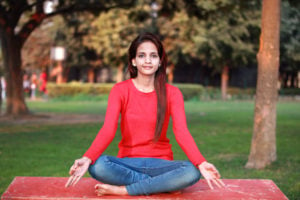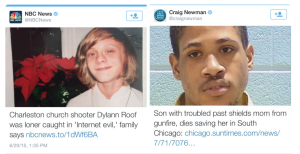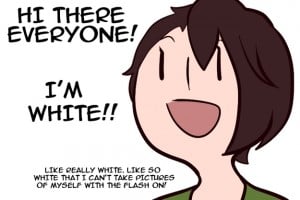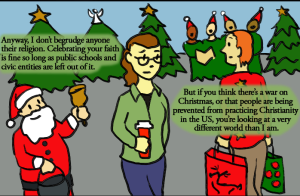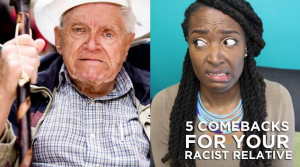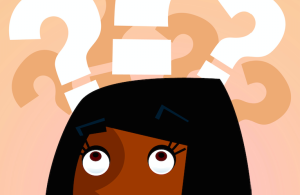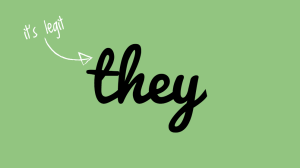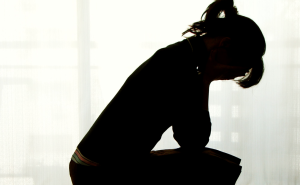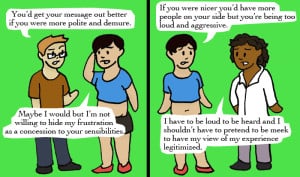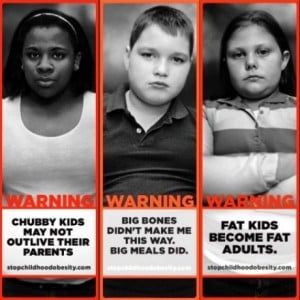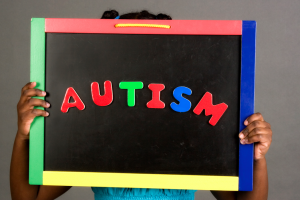Editor’s Note: Although this article uses the language of “women,” we want to be clear that not everyone who can get pregnant identifies as a woman. Reproductive rights and access to abortion are also important issues for trans men and many gender non-conforming people.
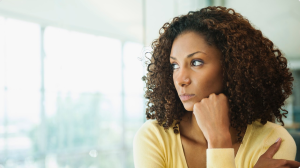
Source: Patti Knows
Originally published on RH Reality Check and cross-posted here with their permission.
I want to draw a connection between the silenced stories of 1-in-3 women worldwide who have experienced physical and sexual violence and the silenced stories of 1-in-3 women in the United States who will have an abortion in their lifetime.
As a survivor of rape and a woman who has exercised my right to choose abortion, 1-in-3 is much more than a statistic.
In my view, the social stigmatization that blames women and tells women they should remain quiet and be ashamed of having been assaulted is rooted in the same view of women as second-class citizens that says abortion should remain unnamed and unspoken about in public.
Gender-based violence takes many forms, and our concept of gender-based violence should be broad enough to include the structural violence inherent in a society that seeks to control and regulate women’s bodies and denies them the ability to exercise their reproductive rights in the absence of stigma, shame, harassment, and a slew of unnecessary legal and financial barriers to reproductive health care.
Today, I offer my abortion story as a means of complicating the assumption that a legal abortion is necessarily a safe abortion in a social and political context that denies women’s reproductive autonomy and moral worth as citizens.
I want to challenge society — and policymakers in particular — to see that it’s not enough to keep abortion legal, as difficult as that fight has been.
I want to offer my story to a collection of stories that make the case for positive and unrestricted abortion rights and hopefully challenge people outside the movement to view my choice in the context of my humanity.
I have dedicated both my personal life and my professional life to the advancement of women’s health and rights. Throughout college, I defended women’s access to abortion and right to reproductive autonomy both through academic engagement and activism.
I’ve done everything from screening on abortion hotlines for women in distress to serving as a clinic defender, protecting women from the harassment of protesters as they entered the clinic for abortion services. As a young professional, I advocate for women’s health and rights every day, nine to five and beyond.
My decision to pursue a career in the reproductive justice movement was based on my own experiences coming of age with a uterus, but it was also deeply influenced by experiences as an advocate in the foster care and juvenile justice systems, watching as pregnant young women were bounced around from foster home to incarceration without so much as a single conversation about the circumstances of their pregnancy or whether they wanted to be pregnant, and without receiving even an approximation of adequate representation in court as they endeavored to keep custody of their baby if they wanted to be a parent.
I knew one young girl who desperately tried to self-induce an abortion from a prison bathroom and another young woman in the throws of despair as her new baby was removed from her custody without cause.
All of these formative experiences taught me how vital it is for women to be in control of their bodies. I had no idea that I would eventually need to exercise my own right to choose abortion.
But I understood that it is fundamental to women’s freedom and liberty as human beings that we have the right to choose when, whether, and how to become parents and that we be fully empowered legally, politically, and socially to safely make our reproductive choices.
Women have countless reasons for choosing abortion. For some women, abortion is needed as a result of sexual violence. For some women, their abortion will be the means of escaping the violence of an abusive partner.
For some women, having an abortion will be a means of keeping the children they already have in the context of a society that makes it difficult for poor families to provide for their children’s basic needs and that punishes poor parents by removing their children from their custody and placing them in foster care.
And for some women, having an abortion will simply be about making the affirmative decision that they do not want to be a parent or have another child.
For me, pregnancy was like this: My body had been implanted with a foreign entity that made me violently ill from the time I got up in the morning until I got home from work at night.
Worse, it was threatening to grow larger and larger until my whole life was subservient to its needs and desires, and others’ expectations of what I should be.
I wanted and desperately needed one thing and one thing only: not to be pregnant. My choice to have an abortion was not one marked by moral ambiguity or internal conflict, not one rife with grief over the potential life that some would tell me I should feel an innate sense of duty to bring into existence.
Not to be pregnant — it was a need that I can only describe as primal.
From the clichéd bathroom scene moment when I learned the result of the pregnancy test until after I had the procedure, I was overcome with a feeling of absolute desperation.
The instant that second pink line appeared on the positive pregnancy test, Roe v. Wade, the Supreme Court decision that had always been an abstract reassurance, suddenly became an offering of grace and a tangible pathway to safety and security and the freedom to determine my future in one of the most vulnerable moments of my life.
My abortion story is a privileged one. To begin with, I am white woman who belongs to the over-educated, penny-pinched demography of the millennial generation.
By virtue of my education and position in the world, I am fortunate enough to have a job that offers me private health insurance that provided coverage for my abortion, which I might otherwise have struggled to afford.
It also provided the sick leave I needed to receive care. What’s more, I grew up in a family that has always validated my reproductive autonomy and my worth as a moral human being capable of making decisions for myself.
I have access to a broad community of people who fight every day for my ability to make the choice that I made. The love and support I received from my family and friends made it possible for me to choose abortion without any sense of dissonance or shame.
But even with the support, validation, personal conviction, and political and practical awareness I carried to the experience, I was terrified when the time came.
I had no fear of the medical procedure itself. The social stigma, however, made the actual experience of accessing care feel unsafe even in a legal, post-Roe context.
Here’s how:
I knew that my choice of providers would be extremely limited. Many medical students are never even offered the opportunity to learn how to provide an abortion, even though it is a very simple and safe medical procedure that all primary care practices should be able to provide their patients.
Abortion doctors are harassed at every turn, and anti-abortion policymakers and activists have succeeded in passing a slew of regulations that make owning and operating an abortion clinic an expensive and often thankless endeavor.
In some states, like South Dakota, there is only one abortion provider to serve the entire state. Women are at the mercy of the provider they find and don’t have the option of choosing a provider based on qualifications and experience.
Since abortion is often relegated to clinics rather than mainstream medical facilities, women utilizing clinics are highly visible to the public and frequently picketed and attacked by anti-abortion organizers who camp outside to physically and verbally harass clinic patrons seeking services at clinics, whether abortion, family planning, or routine pregnancy care.
When I made the appointment for my procedure, the receptionist encouraged me to come on a weekday to avoid the picketers who would have been lined up outside if I hadn’t been able to take time off work and had to go to the clinic on a weekend. Note: This is what happens to women who don’t have access to paid sick leave.
Paternalism is rampant in abortion politics and contributes to the structural violence that can harm women as they seek to access health care or are prevented from obtaining services entirely.
Policymakers don’t trust women to make decisions for themselves, and have worked to institute a host of barriers to abortion access that they believe will discourage women from having an abortion.
These barriers are often needless and invasive and serve as an additional point of harassment for women seeking an abortion, without doing anything to improve the medical care they receive or add any valuable information to the decision-making process.
For example, Governor Ultrasound (Bob McDonnell) in Virginia initially supported a bill to force all women who are receiving an abortion to undergo a vaginal probe ultrasound, with the presumption that women cannot make an informed decision about their pregnancy without being probed and forced to look at an image of the fetus just before undergoing the abortion procedure. In response to the public outcry, the bill was modified to require an external abdominal ultrasound instead. But this is just one example of the many attacks on women’s access to abortion that we have seen in recent years.
The vaginal probe was not mandated for the clinic that I went to, but the doctor had taken it upon himself to institute the policy anyway. I was treated with condescension as I was asked to lay on my back and place my feet in the stirrups for the vaginal probe examination.
I was fighting back tears, not because of the image on the screen, but because I was laying on my back with my legs spread open before a disdainful male probing me with a machine.
As a survivor of rape, this position of passivity brought up emotions that lacerate through every ounce of my being and memories that will never dissipate.
One-in-six women has experienced rape or attempted rape at some point in her life. As a survivor, my desperate need for an abortion forced me to comply with an unnecessary procedure that did nothing to further inform my decision but only served to re-traumatize my body, mind, and spirit.
My voice as a women’s health advocate and a feminist, my whole humanity and all the principles that guide my life, everything inside of me was opposed to what was taking place. But in order to end this pregnancy, I was completely dependent on compliance.
I bit my tongue until it bled. I did not cry. I got the abortion.
I had the privilege to choose to have an abortion and, had I wanted to, I could have chosen to become a mother without fear that the baby would be taken away from me.
What’s more, I had the privilege to choose abortion because I wanted to and because I believed it was the best thing for my life, not because I was forced to by poverty or the coercion of an abusive partner.
But my experience was nonetheless unsafe because the social stigmatization and paternalism surrounding abortion, which has been actively cultivated by an organized anti-abortion movement, made the experience of accessing care damaging to my emotional well-being even though the medical procedure itself was perfectly safe for my body.
My experience is not one that I will let our country, our legal system, our health system, our brothers, fathers, friends, legislators, or governors sweep under the rug.
I felt more silenced on that table than I have felt at any other moment in my life and for what?
Roe made it possible for me to have an abortion without risking my life, health, or fertility and it allowed me to access all of the experiences that my decision not to become a mother has entailed in the past year alone.
It allowed me to find my way out of an unhealthy relationship; to continue in a line of work that is deeply meaningful to me but not conducive to being single mother; to eventually let go of a heterosexual lifestyle that felt restrictive and grow into myself and into a life that feels liberated and open.
Roe saved my life not from the pregnancy itself, but from what enforced parenthood would have meant to me holistically in body, mind, and spirit as a woman and human being.
Every day I am told to be ashamed, to apologize for my abortion, to play the part of an unselfish woman in a set of unfortunate circumstances within which it is acceptable to choose this so-called awful thing we call abortion.
We have to go beyond that.
We have to insist that our right to choose abortion is not awful at all, but an affirmation of our humanity and our worth.
We have to insist on abortion and reproductive autonomy as the moral property of women.
We have to teach our daughters that their bodies, their minds, and their spirits are both beautiful and theirs alone.
Last month, when the country marked the 40th anniversary of Roe, the feminist movement collectively reflected on what the decision has meant.
We were rejuvenated by the pride and gratitude we feel when we remember the work of the women who fought hard and won this most fundamental freedom for us and for our daughters.
But as advocates, we also recognized that we need to take stock of what work is left to be done; to examine who Roe has enfranchised and who it has left behind; to evaluate the implications of the multitude of attacks on access to abortion in recent years.
And while we broil in our collective anxiety about the future of Roe, we also have to think about how to go beyond it.
How do we protect women’s physical and emotional safety, not in a paternalistic, but in an empowering way? How do we honor women’s decisions, women’s bodies, and women’s lives?
We are living in a moment in the United States where the Violence Against Women Act has been attacked and politicized for the first time since it’s passage because of it’s inclusion of protections for Native American women, immigrant women, and the LGBTQIA+ community.
We live in a culture that has attacked access to abortion even for rape survivors who became pregnant as a result of being assaulted.
Let us commit ourselves to cultivating a world in which women are valued as human beings, which means both that they are free from sexual and physical violence and that they are fully empowered to make their reproductive decisions in the absence of legally-sanctioned, structural violence that impedes their freedom to access reproductive health services, whenever they choose to become a mother or choose to have an abortion.
Let us demand an end to all forms of gender-based violence.
[do_widget id=‘text-101′]
Lindsay Rosenthal is the Special Assistant for Women’s Health and Rights and Health Policy at the Center for American Progress. In 2010, Lindsay earned her master’s degree from the University of Chicago, where she studied the relationship between adolescent parenting among youth in foster care and multigenerational involvement in the child welfare system. Her studies were informed by her direct-service experience as a home visitor and child advocate with the Florida Guardian Ad Litem Program. She also served as a White House intern in the Domestic Policy Council. Originally from Miami, Lindsay received her B.A. in English literature and Women’s Studies from Florida International University.
Search our 3000+ articles!
Read our articles about:
Our online racial justice training
Used by hundreds of universities, non-profits, and businesses.
Click to learn more





